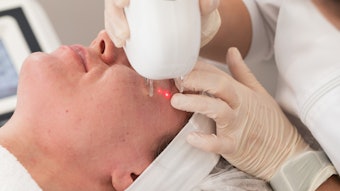
Abstract: Merge magazine’s advisory board members weigh in with advice and recommendations for medical students, as well as those who are just beginning on a path to a medical aesthetic career.
Emphasizing passion and patient care, Merge magazine asked the members of its new editorial advisory board for their best advice regarding students and physicians interested in pursuing medicine and medical aesthetics. Here are their answers.
Q: What advice would you give to college students wanting to go to medical school?
I’d tell them to make sure they know what they’re getting into. Speak with practicing physicians and work hard to understand as best they can the types of demands that medicine places on you physically, emotionally and socially.
Brian Biesman, MD
I mentor students in high school, college and medical school because I am an academic plastic surgeon, and my goal is to help them understand that this is a very honorable profession. But that honor isn’t going to come extrinsically; they need to know that each day their focus is their patients and patient care, working to get those data-driven outcomes while maintaining a healing heart and practice style. They need to be able to combine that healing with running a business, but they really need to understand that their initial goals shouldn’t be financial.
Laurie Casas, MD, FACS
Enjoy the journey itself. The opportunity to spend four years dedicated to learning about the human body is a luxury and only the beginning of a lifelong adventure. While the learning opportunities continue throughout their careers, it is ultimately intermixed with the actual—and sometimes stressful—practice of medicine and family life. Time spent just on learning and self-development during medical school is a very special time of growth.
Joel Cohen, MD, FAAD
My best advice for anyone, especially if they are considering a career in medicine, is that they need to be passionate about it. They must want to follow that dream and make sacrifices for it, because there are sacrifices of their personal lives and time that people outside the profession don’t fully understand. They need to be able to derive satisfaction from the work that makes them want to get up every morning and go and do it all over again every day.
Miles Graivier, MD, FACS
Just realize that it’s a long road ahead, but go for it.
Joseph M. Gryskiewicz, MD, FACS
Study, and do some research early on in their areas of interest.
Jason Pozner, MD
A recent experience put this question into sharp focus for me. A friend of my daughter’s, who had started out in college undergrad as pre-med, changed his major to business because of health care reform. He wasn’t sure he wanted to continue on as a pre-med student because he didn’t want to have to end up working for the government. Based on answers like this, it is possible that health care reform may be sifting out people who were going into medicine with a poor concept of what actual practice is like.
While I love medicine and continue to encourage it to college students, it isn’t without interference from outside sources, including the government. Additionally, despite the fact that it is a great career and one I love doing, there has to be some element of compassion and desire to serve people in it in order to really be completely satisfied in this career.
Joel Schlessinger, MD
If someone needed advice on getting into medical school, when I was a student, the biggest mistake a lot of my friends made in the first few years of college was to have a “good college experience,” which meant they didn’t do as much academic work. They found out later they would have to do a lot more to catch up. Once people made it into medical school, they didn’t realize the work involved. I volunteered a lot—in doctors’ offices and at hospitals—and got a better idea of what it would be like, but I think some people who get into medical school find they may have made a career mistake because they don’t understand how much work it is until they are submersed.
Nowell Solish, MD, FRCPC
I would say do it for the right reasons, because it’s something they have a passion for. Being a physician is immensely rewarding—patients, for the most part, are appreciative when coming to see them and they get positive feedback throughout the day—but a career in medicine is such hard work that they really need to feel a calling for it.
Hema Sundaram, MD, FAAD
Any college student should make sure they are pursuing something they have a passion for. That will enable them to stay excited and have their work not become mundane, and encourage them to strive for their best. Striving for excellence is an important thing, and that’s something they can only do when their job is something they really enjoy.
Jonathan Sykes, MD, FACS
Make sure they want to go into this field for the right reasons, because it is a long haul. I would also recommend majoring in a non-science field in their undergrad, because it’s their chance to explore other interests in depth before they get into medical school.
Heidi Waldorf, MD
Spend as much time as possible with a variety of physicians that practice in a variety of specialties, and who practice in all types of environments. Don’t limit themselves to spending time with just one physician, because it will be very important to spend as much time as possible in a variety of settings with a variety of individuals.
Steven G. Yoelin, MD
Q: What piece of advice would you give to a graduating resident in your specialty focusing on aesthetics?
Always make recommendations to your patients as if they were a member of your own family.
Brian Biesman, MD
Have as your focus the patient. Utilize data-driven results to modify the techniques you’ve learned. Continue to expand your global thinking of aesthetic outcomes, and try to allow yourself to be innovative while maintaining patient safety as the center of your daily practice.
Laurie Casas, MD, FACS
Keep focused on what the patient desires, not necessarily what you think would be the ultimate treatment. Developing meaningful relationships with your patients in time also helps decode their ultimate aesthetic goals.
Joel Cohen, MD, FAAD
Don’t be overwhelmed by the newest and latest equipment and technology. You need to focus on good surgical principles and philosophies and patient care. You also need to evaluate your long-term results to see if there’s something different that can be done to see results that are longer-lasting and appear more natural. You need to be critical of your results in order to improve, and you need to not be afraid to change and modify your techniques to get those results.
Miles Graivier, MD, FACS
Get the best staff in the world, and keep working to maintain that staff. Also, get a dynamite website with lots of great before-and-after photos. And, if you have time, write a book.
Joseph M. Gryskiewicz, MD, FACS
You need to start with the things your family—your mother, your sister, your relatives—would want that are nonsurgical. Get good at Botox and fillers, and learn about technology. The future of our specialty is in technology and things are only improving from here in that area. Also, read widely, and read in different specialties—always keep learning.
Jason Pozner, MD
Personally, I think it’s a bad idea to just do aesthetics alone. While I love the aesthetic procedures I offer, I think it would get boring to just do Botox injections and laser treatments all day. I love the robust and varied day that I experience, offering the combination of general dermatology and cosmetic dermatology.
Joel Schlessinger, MD
The most important thing is to get a lot of experience. One of the best things I ever did, and still do, is to take some time and visit someone else’s office and be a fly on the wall. This helps to learn the business, the people and different techniques. Obviously different people have different techniques they are great at, and going to courses and seminars and reading is great too, but getting to be there to experience and observe is unlike anything else you can do.
Nowell Solish, MD, FRCPC
Make sure you really have a love for the aesthetics field. It offers that balance of science and art—there’s obviously a lot of art in it by nature, but there’s increasingly more science as we advance our understanding of lasers, fillers and neurotoxins. You have the opportunity to continuously improve yourself and your craft, and you have to love to work with your hands. There are new developments in the field all the time, so be prepared to continue learning—from your own experiences, from colleagues and from patients—and hopefully make a contribution to the field through your own research some day.
Hema Sundaram, MD, FAAD
Pursue excellence rather than only the business bottom line. If you do outstanding work you will tend to be busy, and there’s a lot of satisfaction in doing good work. It’s also been good for me to do reconstructive work in my practice. It gives me a different perspective from when I do my aesthetic work, and helps me value those good results. It also allows me to have different business when aesthetics wanes a bit in terms of volume, but most importantly, it gives me a grounded perspective.
Jonathan Sykes, MD, FACS
I would say don’t forget your medical dermatology knowledge and training, because what separates us from the non-core specialties is our scientific understanding of the biology of the skin.
Heidi Waldorf, MD
Desire to become extremely successful, from both a financial point of view and a total career point of view. Never allow yourself to stop learning, to be complacent or to sit on your laurels. In other words, go for the gold, and make it your business to become one of the most competent aesthetically minded physicians in the world.
Steven G. Yoelin, MD










